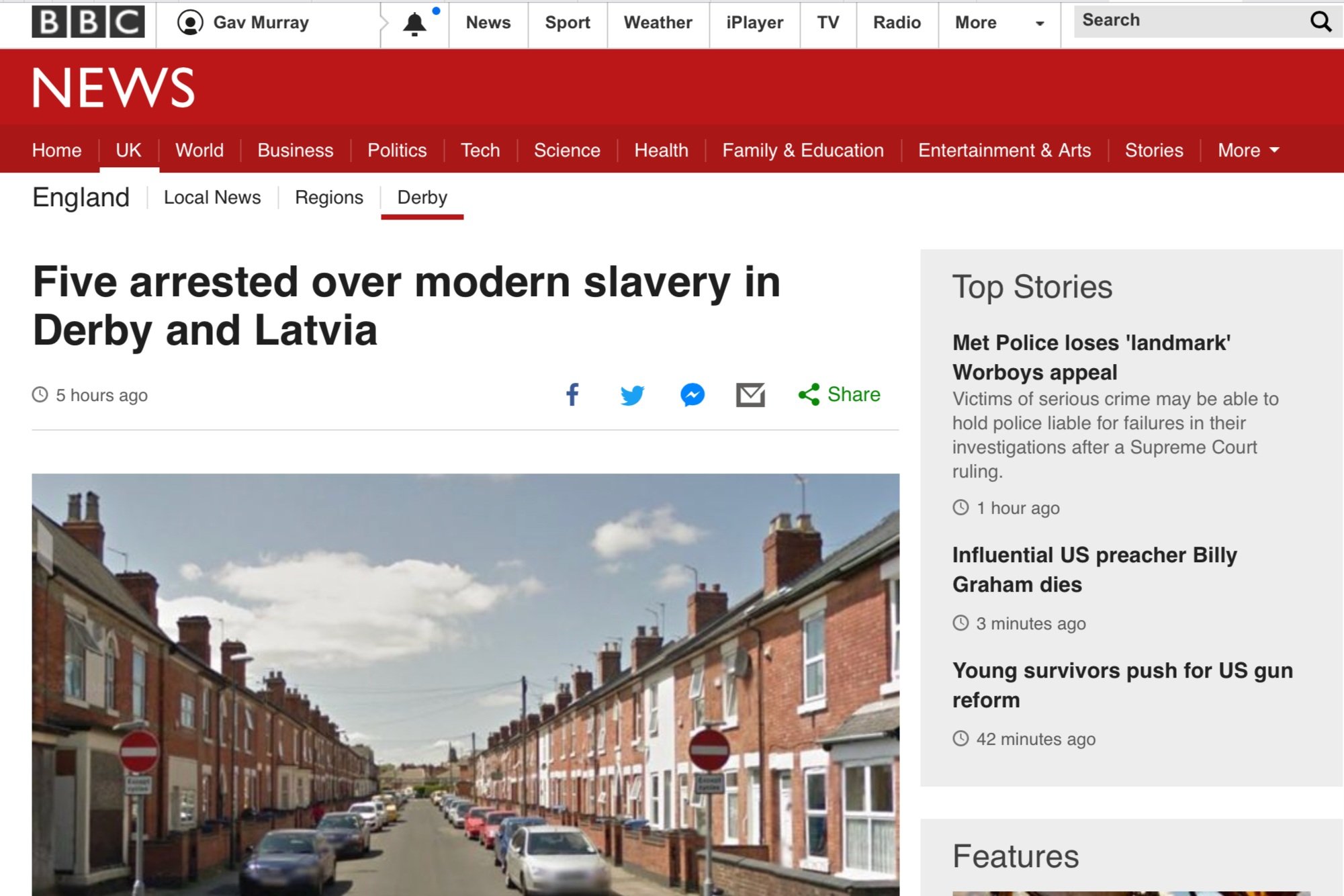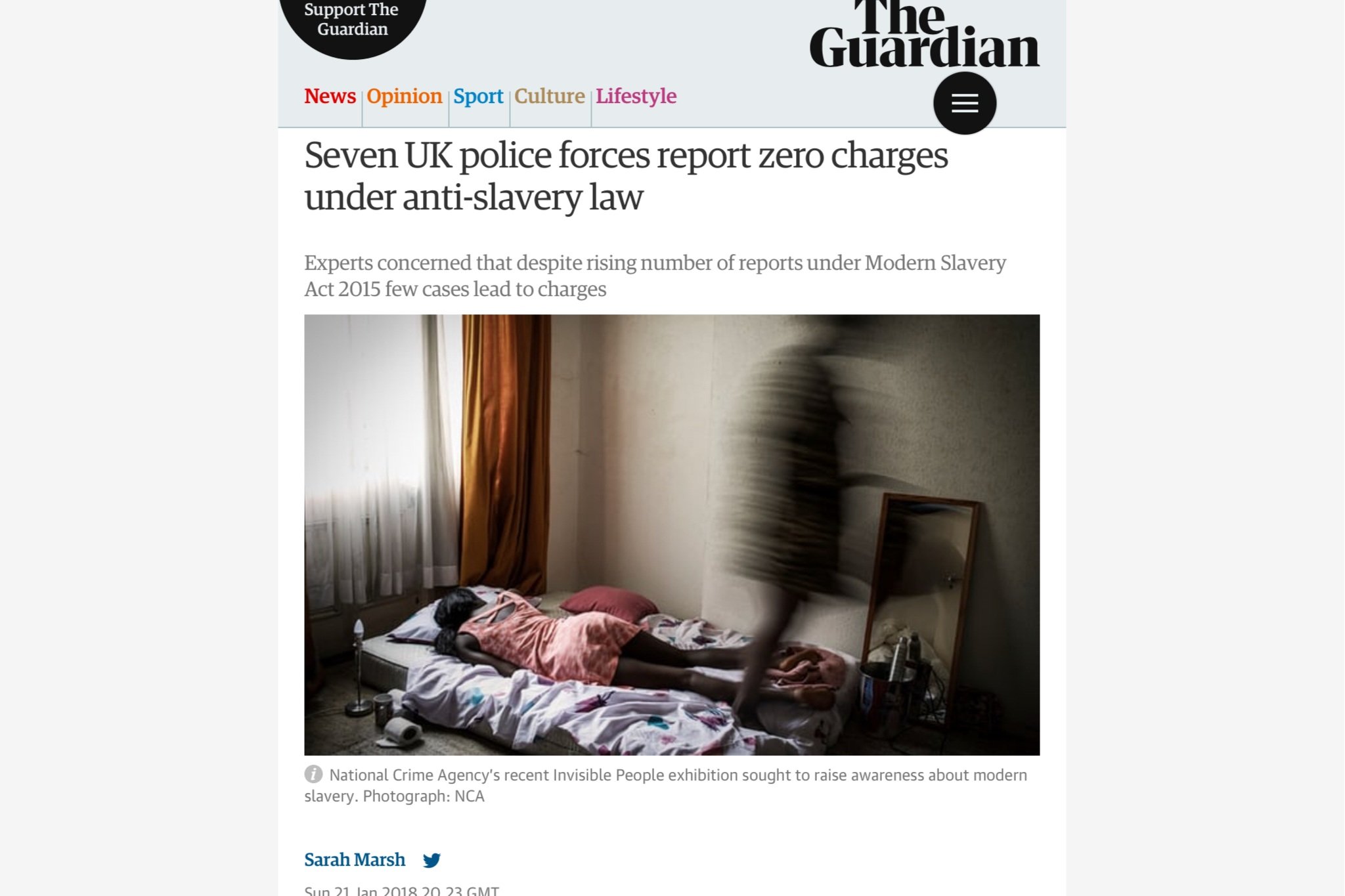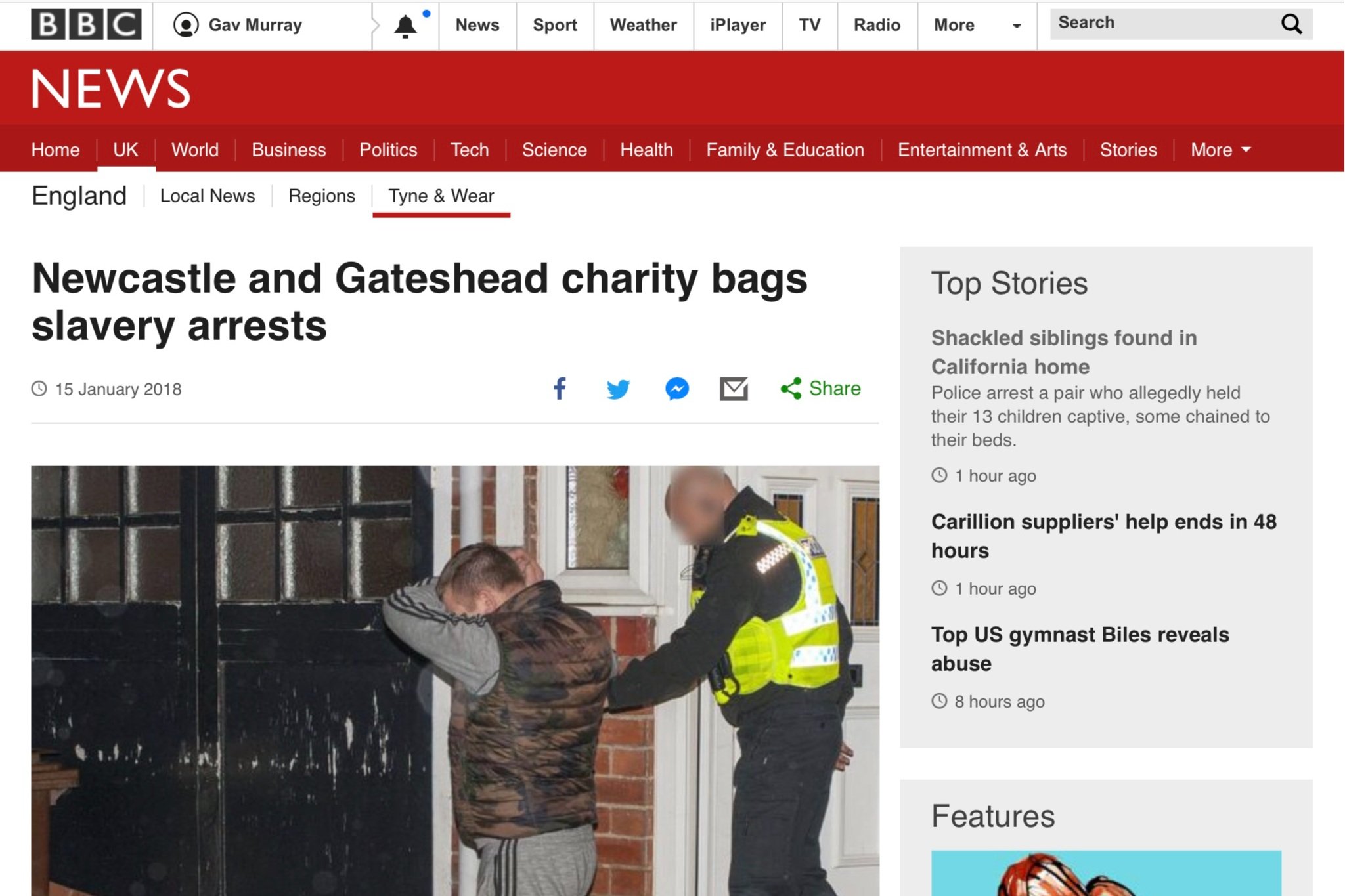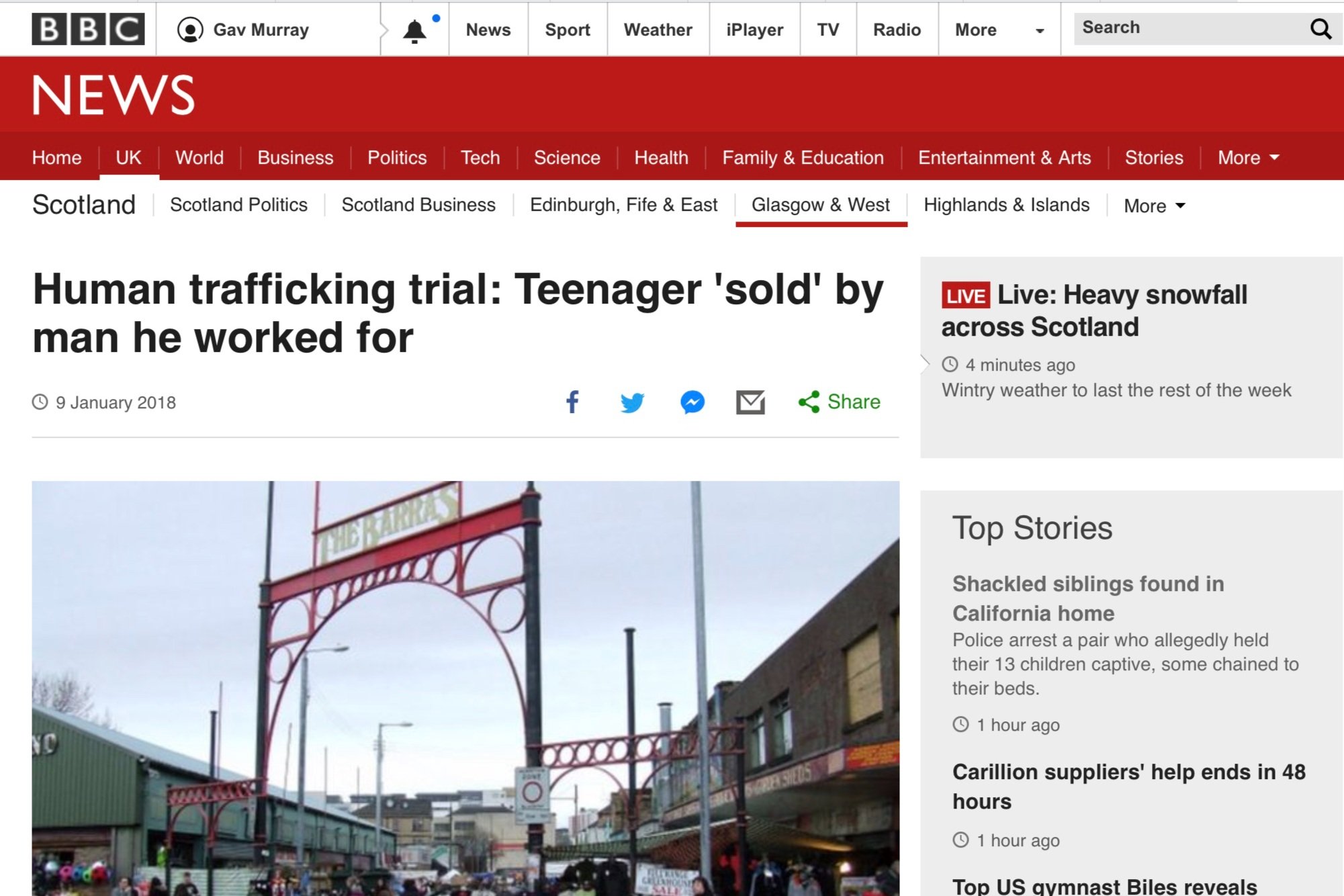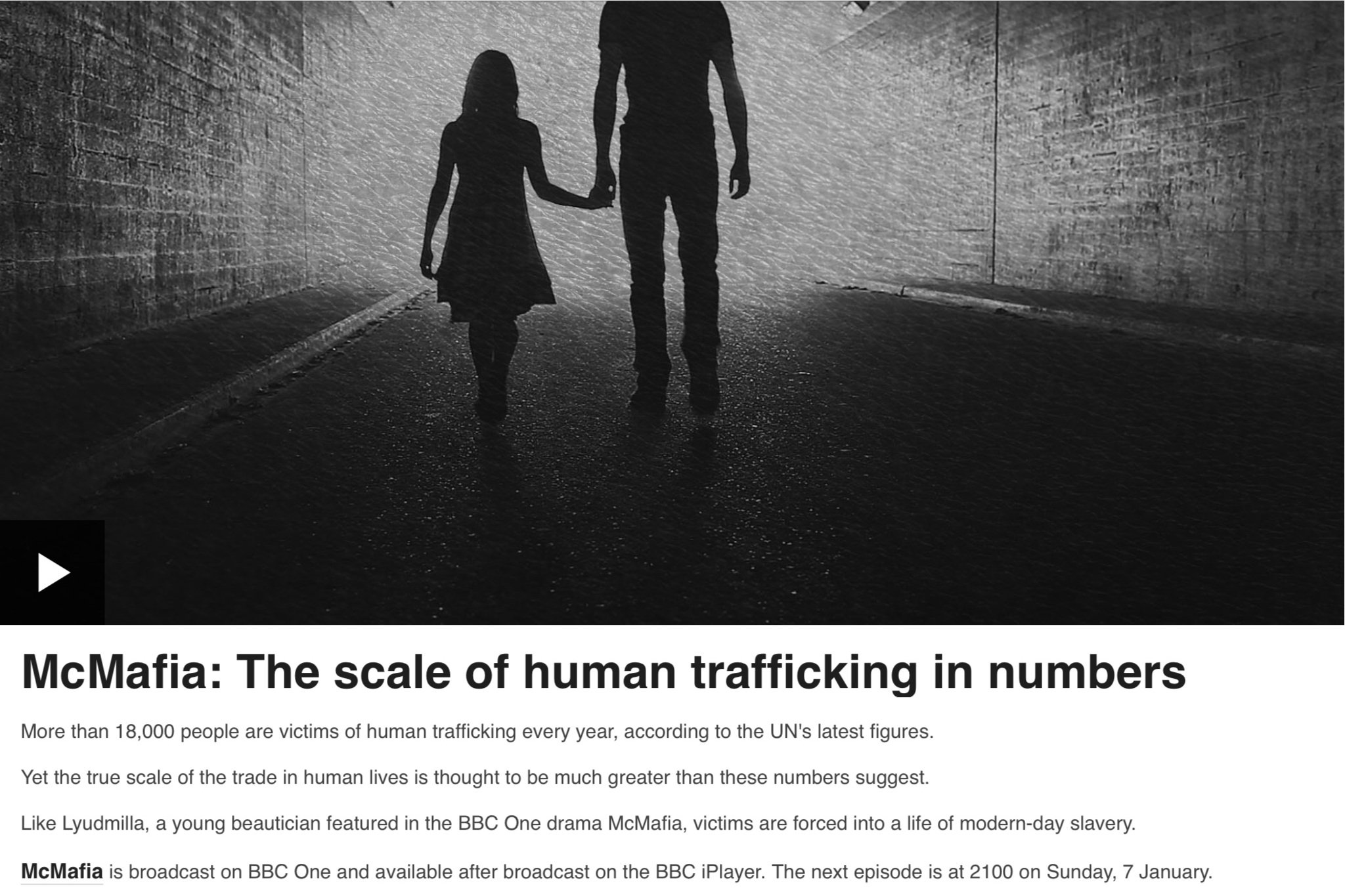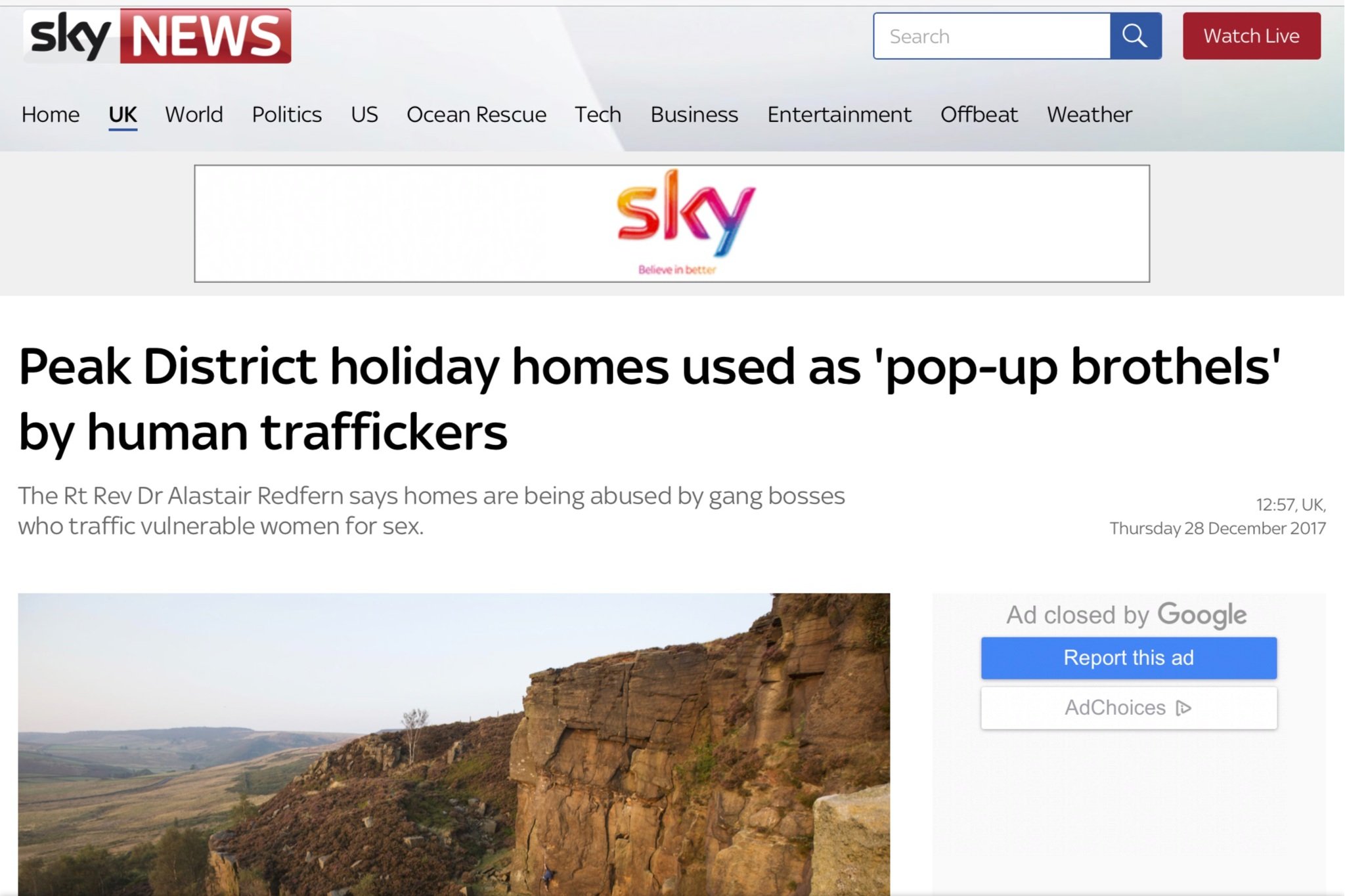...for the joy of freedom…
At Just-Ice we simply love making a difference. All the delicious ice cream and sorbets are about helping restore dignity, hope and a future for people who've been held in modern slavery in this country. As well as this, half of our profits go to existing charities who prevent, rescue and rehabilitate child soldiers anywhere in the world. Our long term goal is to set up our own charity that will do this directly, working with local partners. Both these massive issues are complex and often misunderstood so below is a brief summary of what goes on and various links to help you understand more. Part of the ongoing battle is about awareness and education so if when you follow the links you can like them or retweet them that would be great.
Caution:
Everything below is tough reading. Once you hear these issues you may, like us, be grabbed for life. Perhaps once you've read this you understand why, although bonkers at first, Ice Cream is such a great means to tackle such a dark subject; everyone loves ice cream, have an ice cream and you feel good. Hence, the joy of ice cream for the joy of freedom.
Modern Slavery and Human Trafficking
Stock photo by David Rodrigues from Unsplash.com
The defining characteristics of slavery is the exploitation of a human being for the profit or gratification of a organised individual or group. This occurs in a setting where the victim is trapped and left without a voice. Slavery is not a new idea, what makes it modern is that the practice has been adapted to the society we live in today, hidden under the very cities, towns, and countryside we all live, work, and travel in.
Human trafficking is the involuntary transportation of people across any kind of border, including between or within countries. Victims are often taken through improper means such as abduction, fraud, or coercion and can be sold to be exploited. It is the way people in modern slavery often end up in their situation.
Modern Slavery is a heinous crime against humanity which treats people as mere things that can be bought, sold and discarded; a violation on their very humanity, and grave human rights abuse. Sadly it is big business. It’s a $150 billion industry just for forced labour. It’s estimated there are around 24.9 million people (this varies) held in slavery globally. And it’s happening in our towns and cities here in the UK. People are often conned into coming to the UK for a job, only to be beaten, have their documents stolen and forced to work in terrible conditions for no or little pay, under threat of their families back home being killed. They are trapped and fed the lie that the police cannot be trusted. It is a living hell.
Types of Slavery
Stock photo by Marwan Ahmed from Unsplash.com
The 3 most prominent forms of slavery globally are labour (39%) criminal (17%), and sexual exploitation (10%).
Labour Exploitation - forced into unfair working situations where most or all of the pay are given to exploiters
Criminal Exploitation - forced into committing crimes such as shoplifting, begging, or the becoming involved in the drug business
Sexual Exploitation - forced to perform sexual acts for the benefit of exploiters
Spotting the Signs
Many exploiters do their best to ensure there are no obvious signs and that their slaves look presentable. Sometimes the clues are in the 'absence of normal' instead. For example, if there are signs of a co-worker regularly bathing or shaving at work, or perhaps they never share personal information, never have any weekend plans or appear to have no life outside work.
Isolated and Restricted
Workers are rarely on their own and appear under the control or influence of others who speak on their behalf, interpret for them, present their documents or take them to and from work.
Reluctant to Seek Help
Workers avoid eye contact, appear afraid to talk, generally fearful or reject help when offered. This occurs as they may be taught to fear the authorities or retribution on themselves of loved ones.
Few Personal Belongings
Having few or no personal belongings or documentation, no money, little or no food, little or unsuitable clothing.
Poor Physical Appearance
Signs of malnutrition, being frightened or withdrawn, having injuries, being unwashed, wearing the same clothes every day.
Tell Someone
If you spot a person or a business you suspect is involved in modern slavery then there are a few ways you can report and request an official investigation. Act discreetly and don’t engage personally because if noticed you can be putting yourself or the victim in danger.
UK Modern Slavery Helpline for help, advice, and support on any modern slavery issues - 08000 121 700
Call the police in a emergency where people are in imminent danger - 999
Call the police in a non-emergency situation - 101
There are also phone apps that have been designed by charity organisations that make it easy to report any suspicions you have.
The Safer Car Wash App
Unseen App
News on Modern Day Slavery
Click on the images to open the articles
Sky News: Britain's Hidden Slaves
Sky News reporter Adele Robinson goes behind the scenes with Hope for Justice for a year and accompanies them on a recent rescue.
BBC News reports on arrests and rescue in Derby, Sept 2017
A decent raid in Derby resulted in 5 arrests and 10 people rescued from slavery in an ordinary house on an ordinary street. It could be yours.


